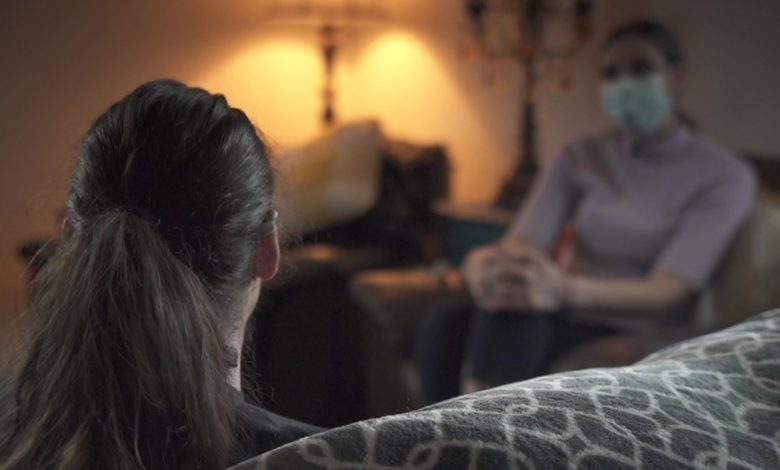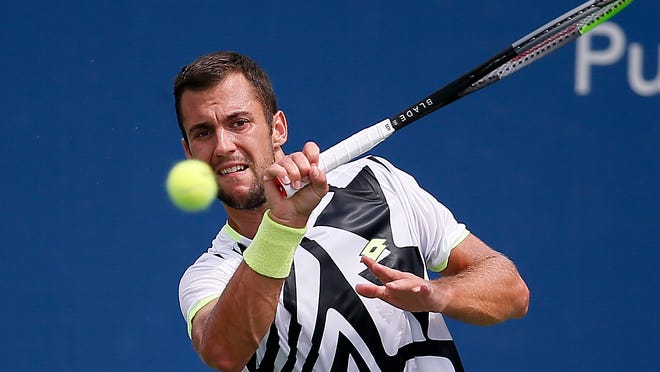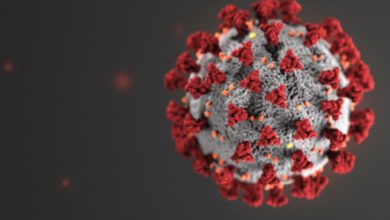
PORTLAND, Ore. — It was the first state to decriminalize marijuana in 1973, and now, Oregon is the first state in the nation to decriminalize small amounts of all drugs. This new law is meant to cut down crowding in jails and get more funding to help people battling addiction.
For those in recovery, it may not change their lives immediately, but it has already given hope for a truly successful future.
Suzanne, who asked that we not identify her by her last name, is actively fighting to get clean after a years-long battle with addiction. She said she feels encouraged that help will be available under this new law that’s also shifting the culture and conversation around addiction.
“It's just, I want that happiness back because when you're in your addiction, you're just evil and angry,” said the mother of three.
She said stigma in the community and spending time behind bars has only made her recovery harder over the years.
“My addiction doesn't stem from something that I wanted to do,” she said. “If you take away the addiction, would you still do those things? No, I wouldn’t. People who don't know that have never experienced that for themselves, they're very judgmental. Humans are very harsh, very, very harsh."
Her addiction began with several injuries when she was in high school and college.
“I shattered my collarbone and I had 7 surgeries,” she said.
That was after having multiple foot surgeries as well. Prescribed painkillers became addicting. Eventually, chasing that euphoric feeling led her to try heroin.
She said the night she tried it for the first time is burned into her mind. Someone she knew offered her the drug.
“I will remember to this day,” Suzanne recalled. “He said this to me, ‘This is the worst drug. I don’t know if I should give it to you; it will ruin your life.’ Well, he was definitely right."
Suzanne was a nurse, but her addiction got in the way.
“I lost my job, which I very well should have, because I was falling asleep and doing very bad things, and that’s when my life went for the worse,” she said.
She has been in and out of jail multiple times. It left her with a realization that many in recovery face: jail did not help her get better.
“When you have a disease and you're getting punished for having that disease instead of being helped, it's very confusing for me,” said Suzanne.
Other Oregonians in recovery have suffered to the same conclusion.
Morgan Godvin was injured during basic training for the Air Force.
Morgan Godvin
From those injuries, she developed an addiction to pills and other substances. She was sentenced to jail time after her best friend overdosed and died. Police held her partially responsible for his death, and she soon found herself facing federal charges.
“And it was that experience that really sort of awakened my sense of justice,” said Godvin, who is now a writer and community advocate fighting for better resources for those battling addictions. “I knew I had to try to change the system, the same system that harmed my friends and I, that incarcerated many of my friends, only to see them overdose and die after their release from prison. I couldn't allow it to continue.”
Godvin’s experience led her to advocate for recovery over incarceration.
“We have been taught now for decades that the proper response to substance use is incarceration,” she said. “And now, we sort of regurgitate this reflexively, but this is war on drugs rhetoric. Jail is not a place of healing. Addiction is very often a trauma response. Jail is traumatizing. We need support, we do not need punishment. Addiction itself is punishing."

Morgan Godvin
Tanesia DeMacon, another Oregonian in recovery, echoed Godvin’s sentiment. DeMacon said jail was actually the place she became interested in trying heroin.
“Heroin was something that was introduced to me through going to jail. County jail,” said DeMacon.

Tanesia DeMacon
DeMacon said the path to recovery has been hard. She’s been unable to get care immediately at times, which has made her journey even tougher.
“It makes me really sad because I'm I know that I'm better than that,” said DeMacon. “It makes me really sad that it's not something that you can just be done with, that your body is just like physically needing it, and no matter what your intentions are, it's your body's got different plans."
However, all of these women have renewed hope with Oregon’s new law decriminalizing drugs in order to better focus on treatment over incarceration. DeMacon says it gives her a sense of relief knowing if she fell back into her addiction, she could get help and keep her family together.

Tanesia DeMacon
Now, any person with small amounts of methamphetamines, heroin or other drugs will face a civil fine up to $100, which is equivalent to a traffic ticket. They'll also and be recommended for addiction counseling, but serve no jail time.
Todd Flynn of Sober Living Oregon Recovery Center said this new law will hopefully help get people clean.
“It’s not legalizing drugs. It's decriminalizing the people who are using drugs, the very people that are draining the system of all of the resources and everything like that,” said Flynn. “And the very reason that those resources are being drained is because there's not enough money to address this medical model type thing that's got to be addressed."
Flynn says this law will hopefully signal an important cultural shift in the state, too.
“Oregon is starting to represent that it's OK to have a disease to go be treated for as opposed to hiding in the closet,” he said.
The law also establishes millions of dollars of funding for addiction recovery from Oregon’s legalized marijuana industry and state prison savings. Some of that funding will be diverted from schools or the police, but Flynn said the money is necessary to treat addiction as the disease it is and to truly decrease overdose deaths.
“Disease model of care doesn't have a lot to do with our morals or our judgment or what we believe punitively should be done. Disease model of care has everything to do with starting with the individual and treating their symptoms to get them on the other side of a life-threatening disease,” Flynn said.
The law’s only been in effect a few months, so there’s no data to show it works just yet.
Mercedes Elizalde, the public policy director of Central City Concern, said she believes the implementation of this measure will hopefully happen in three phases to truly address the issue of addiction in the state.
First, she said, comes a culture shift.
“For way too long, the courts and the jails saw it as their work to respond to folks who have substance use disorder, and so, we do have a real lack of commitment from our health and human services framework to even be really responsive to this community in that way,” said Elizalde.
She hopes people will begin to think of treatment-focused ways to address this crisis.
Second, she believes, is the need to scale services up to address the incredible scope of this issue.
“Oregon has one of the lowest rates of reimbursement for substance use disorder, one of the highest addiction rates, and one of the lowest access to care," she explained. "So, we’re starting at negative and we really need to start scaling those services up so it becomes less stigmatized, more welcoming, more supportive across all communities, that if somebody is ill, we are having that kind of response."
The third phase will be prevention.
Elizalde’s hope is that in the long term, this step will allow organizations to intervene in trauma and treat the root causes behind addiction before they lead individuals to severe illness.
“The intent is to solve the problem, not make it worse, and that the jury's still out on that,” said Flynn. “We're starting to find that the path of least resistance is love, compassion. Substance, community, these types of things, not you've done something wrong again. How do we correct this wrong behavior? Sure, the behavior is wrong, but that's not how we're going to get it corrected."
Godvin agrees and is inspired the community she advocates for will finally receive desperately needed services.
“Our substance use disorders response system was starved to the point of decay for many, many years. So, not only do we need to sort of recoup and get to what should have already been our baseline, then we need to ratchet that up many more levels. So, it's really important to realize that this will be a process because we didn't just end up here one year to the next. Our state took a very slow decline when it comes to access to services, behavioral health and substance use disorders rates, but with consistent funding year after year, we can do it,” Godvin said.
But, even without clear data, one result is already clear: optimism hangs in the air.
“It makes me feel good that, when I make the choice to remain clean, there's help there,” said Suzanne. “I don't feel so alone or like I'm a bad person. I am still going through a really hard time, but I have a lot more hope and a lot more drive to know that I can accomplish something.”








